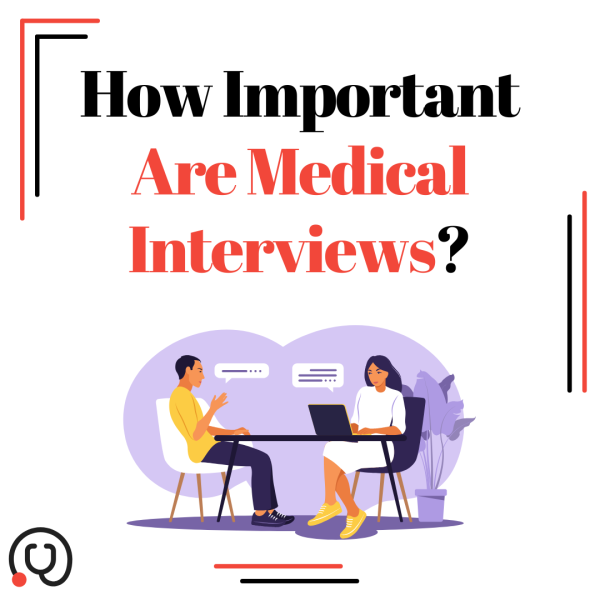How Important Are Medical Interviews?

2 months ago by Chris
So, you’ve completed your UCAT and you’re working hard to get good grades in your studies, but what about your medical interview? Medical interviews are perhaps the most underestimated part of the medical entry process.
Many students do not prepare for them, either because they do not recognise the importance of medical interviews, or do not understand how difficult they are. However, medical interviews are arguably the most important part of the medical school admissions process in the UK.
Why are medical interviews so important?
For many universities, as long as candidates achieve a minimum UCAT score and academic requirements (GCSEs, A-Levels, etc) entry into medicine is based entirely on interview performance. This includes universities such as Bristol, Imperial, Southampton, Newcastle and KCL.
Even with perfect academic scores, many applicants are unable to convey the required qualities during the interview and are therefore unable to secure an offer.
The importance of the medical interview can be demonstrated in how many students are offered a place. For example:
- At Bristol, 1 in 3 interview applicants received an offer
- At Anglia Ruskin and St. George’s, 1 in 4 interview applicants received an offer
- At Edinburgh and Oxford, around 1 in 5 interview applicants received an offer
Why are medical interviews used in selection?
Because applicants are all on a similar level academically, medical interviews are used to distinguish applicants based on their non-academic qualities.
Medical interviews provide universities with the opportunity to assess candidates’ interpersonal skills. While medical school candidates are often highly intelligent, capable and hard-working individuals, the field of medicine also requires doctors to have excellent communication, teamwork, empathy, and other non-academic values that are difficult to reflect on paper.
What do medical interviews assess?
Medical interviews help assess your suitability for the course. As different universities have different styles of teaching (PBL, integrated, CBL), interviewers need to make sure your learning style is suited to the particular course.
Medical school interviews are also used to probe your intentions - do you have a deep interest in becoming a doctor, or are you only interested in superficial aspects of medicine? Questions like, “Why do you want to study medicine?” are asked because medical interviewers want to make sure you’ve put thought into your answer - “To help people” won’t cut it!
Additionally, interviews are a great way to assess applicants’ body language, communicative and critical thinking abilities. Interviews require applicants to speak in a cohesive and confident manner, as well as have the ability to formulate answers on the spot. For MMIs (which are used in majority of medical schools), interviews assess a wider range of skills which require you to demonstrate in short, 10-minute stations.
Medical school interviews help interviewers set apart weaker applicants - those who are not able to perform under pressure. Interviewers understand that interviews are extremely stressful and give them an opportunity to see how candidates perform under pressure. Doctors have a responsibility to work diligently and effectively under pressure in their day-to-day life. This is why it’s important to practice for your interview. More practice means you get used to the discomfort and the stress that comes with interviewing.
Why is it important that I perform well in my interview?
Because all candidates are on a similar level academically, it is even more important to let your personal attributes shine during the medical interview.
Additionally, remember that a number of medical schools have a 100% weighting on the interview - this means that your offer is solely dependent on your performance at the interview.
How can I prepare for my interview?
MedEntry provides training to help you ace your interview. Note that this is not about producing robotic answers, but about preparing and practicing your key points so that you can give a well-thought-out answer.
Don’t let your medical entry dream be dashed – take your interview seriously and get preparing!


